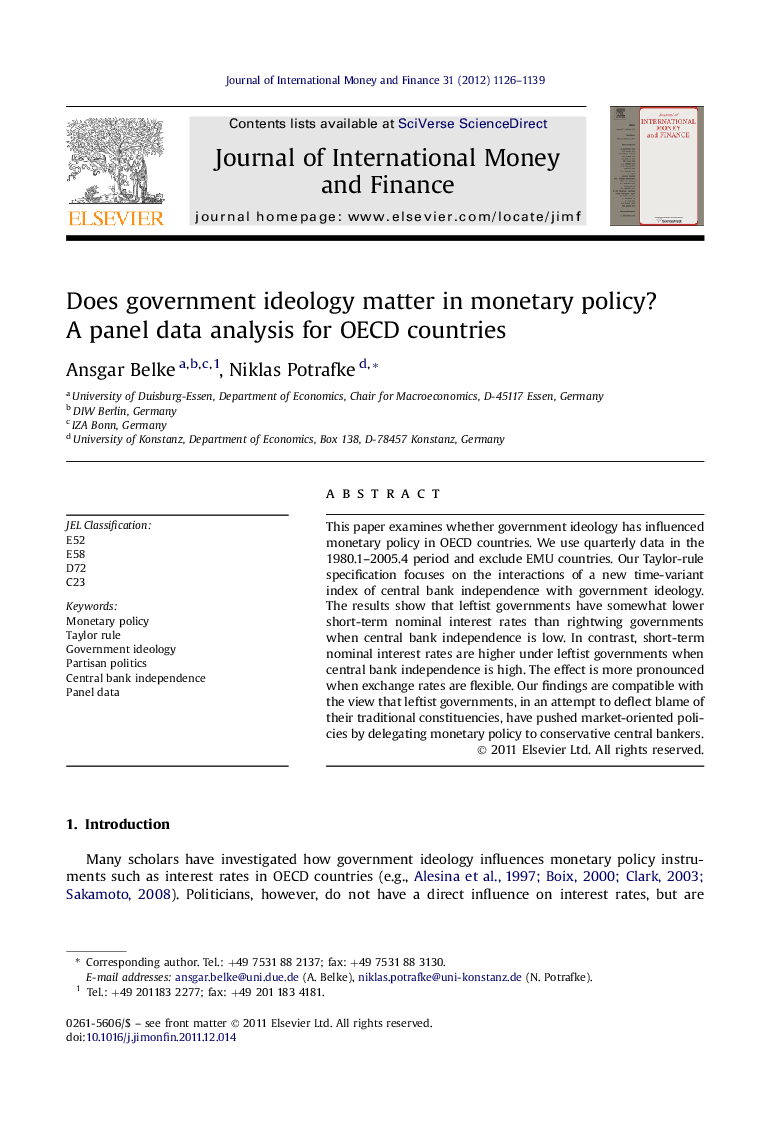| Article ID | Journal | Published Year | Pages | File Type |
|---|---|---|---|---|
| 10477492 | Journal of International Money and Finance | 2012 | 14 Pages |
Abstract
This paper examines whether government ideology has influenced monetary policy in OECD countries. We use quarterly data in the 1980.1-2005.4 period and exclude EMU countries. Our Taylor-rule specification focuses on the interactions of a new time-variant index of central bank independence with government ideology. The results show that leftist governments have somewhat lower short-term nominal interest rates than rightwing governments when central bank independence is low. In contrast, short-term nominal interest rates are higher under leftist governments when central bank independence is high. The effect is more pronounced when exchange rates are flexible. Our findings are compatible with the view that leftist governments, in an attempt to deflect blame of their traditional constituencies, have pushed market-oriented policies by delegating monetary policy to conservative central bankers.
Keywords
Related Topics
Social Sciences and Humanities
Economics, Econometrics and Finance
Economics and Econometrics
Authors
Ansgar Belke, Niklas Potrafke,
